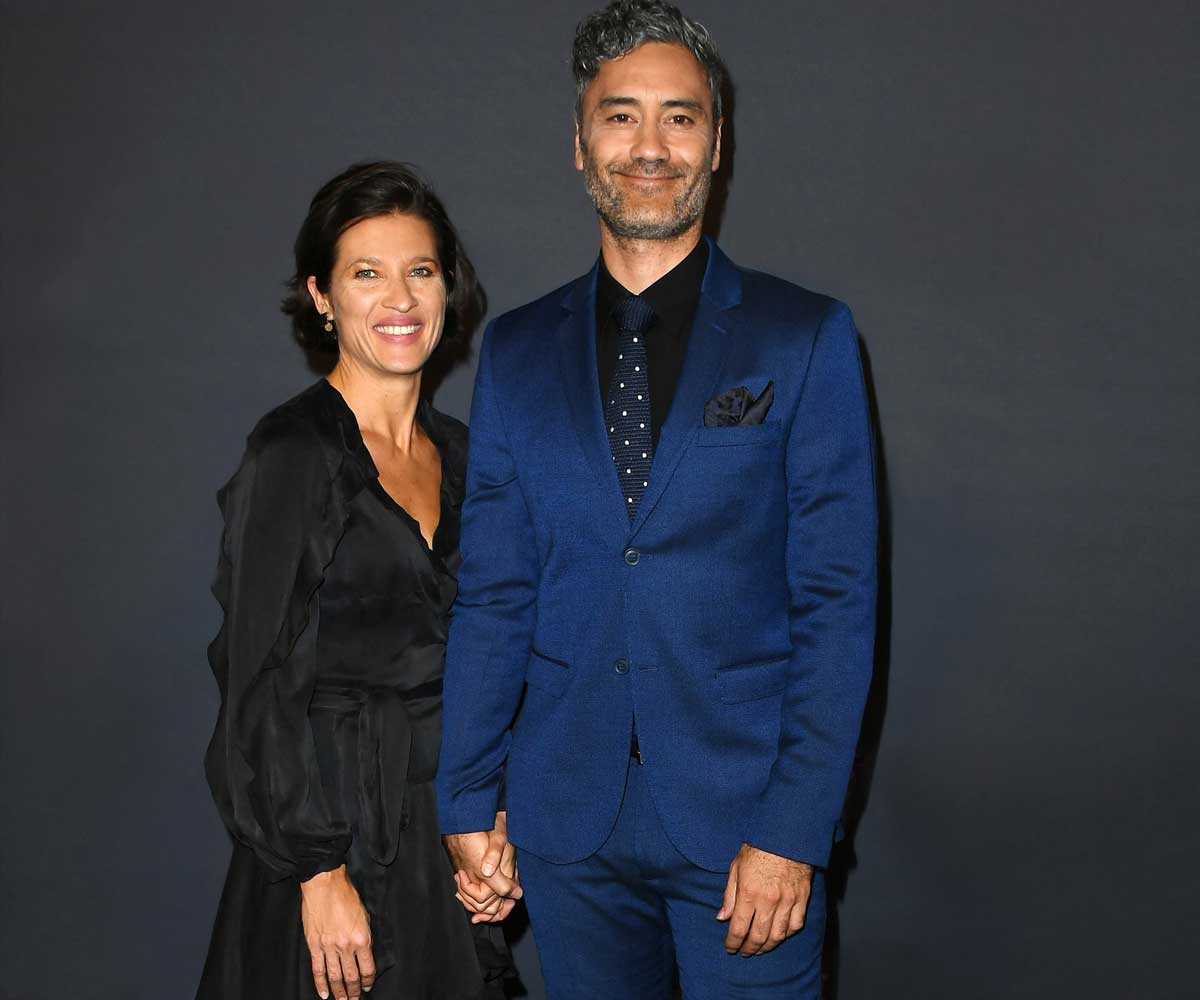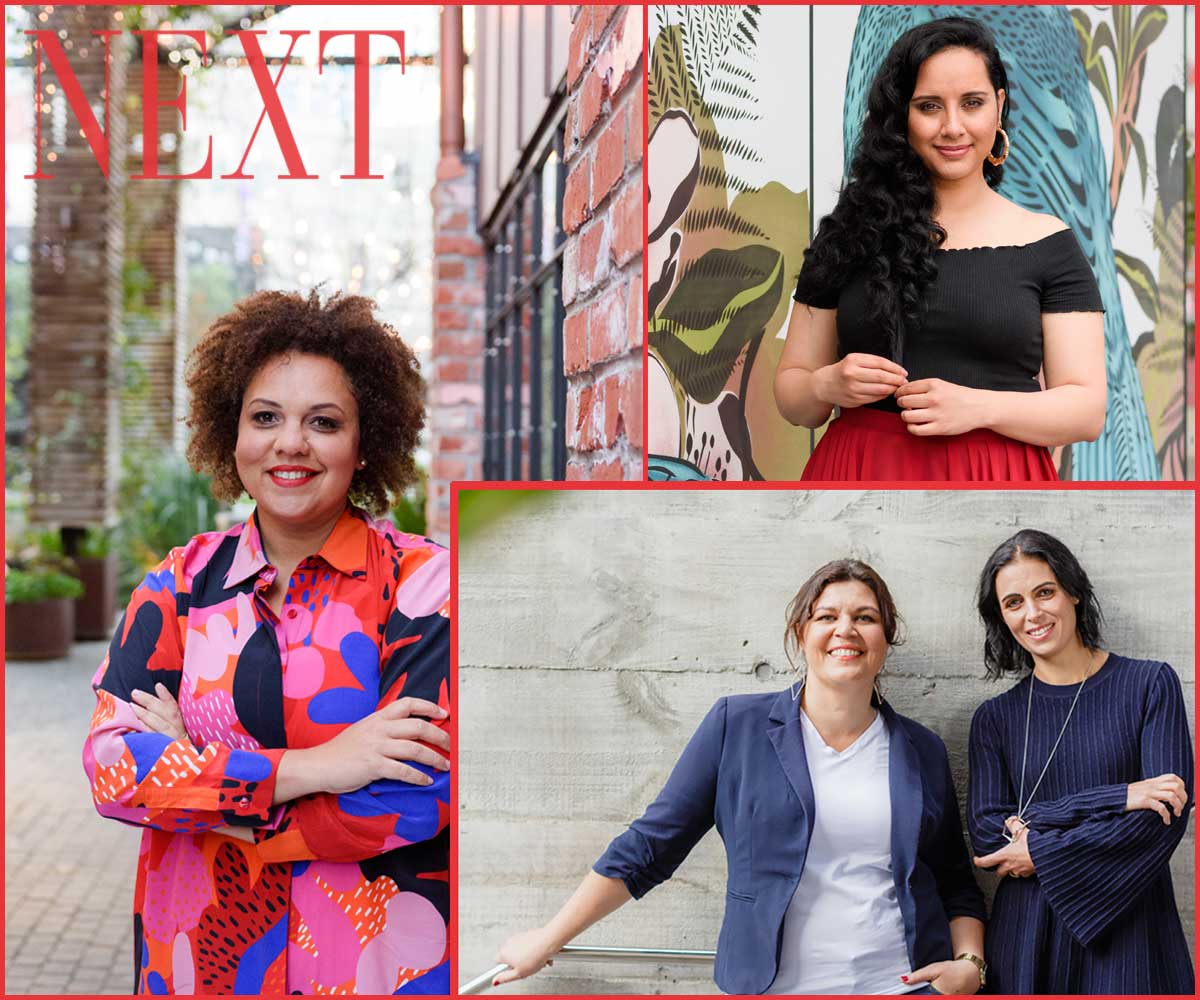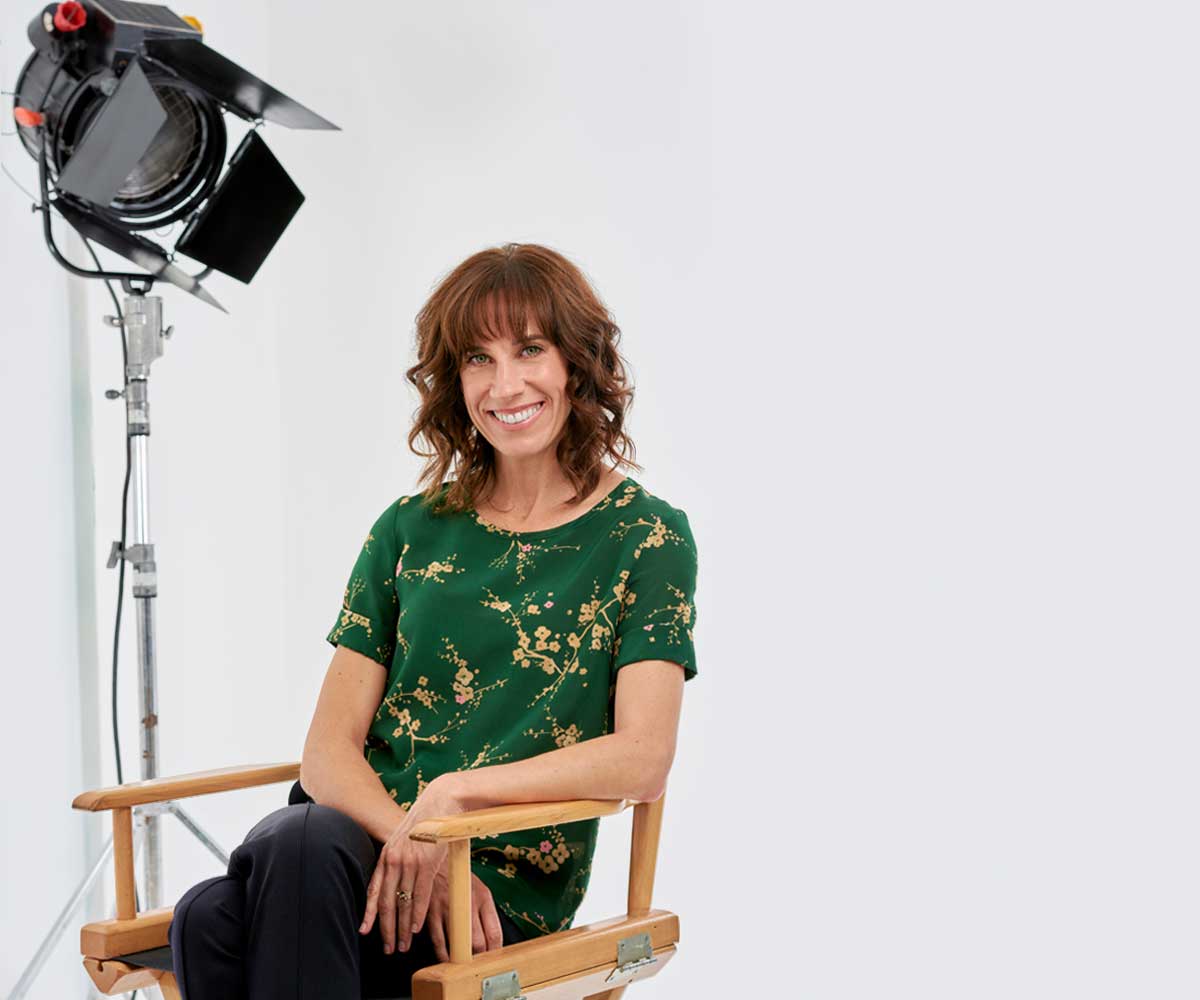There are two Chelsea Winstanleys. One is “Taika Waititi‘s wife” – the longtime partner of the hotshot New Zealand director, who accompanies her husband to glitzy premieres alongside Chris Hemsworth, parties with Snoop Dogg and lives in a hilltop home in the celeb-heavy Los Angeles neighbourhood of Studio City.
Then there’s Chelsea Winstanley the award-winning producer and director. A dedicated mother-of-three. A child of divorce, who endured the pain of sexual abuse, losing her ability to walk and solo motherhood all before she graduated.
While the scars remain – physically, in the titanium rod still inserted in her leg, and emotionally, in the unwavering inner demons of abuse – the driven Kiwi has assiduously tackled every hurdle fired her way.
Today, on a sunny afternoon in California, she’s like any other mum, sipping coffee and musing over the challenges of reigniting her career, while her two-year-old daughter, Matewa, crawls onto her lap waiting to be read a Maori children’s book.
“I’m 42 and was freaking out, thinking, ‘I can’t go back to directing now. I’m an old fart!'” she admits.
“But it’s your ideas, stories and what you have to say that matters. The great thing about LA is I’ve found some cool film-making mums and I needed that female bonding as opposed to just having Taika’s mates and blokey cohorts. I needed my own network of women, so we can support each other. Now, I feel like this a place where I can reinvent myself and it’s the perfect time.”
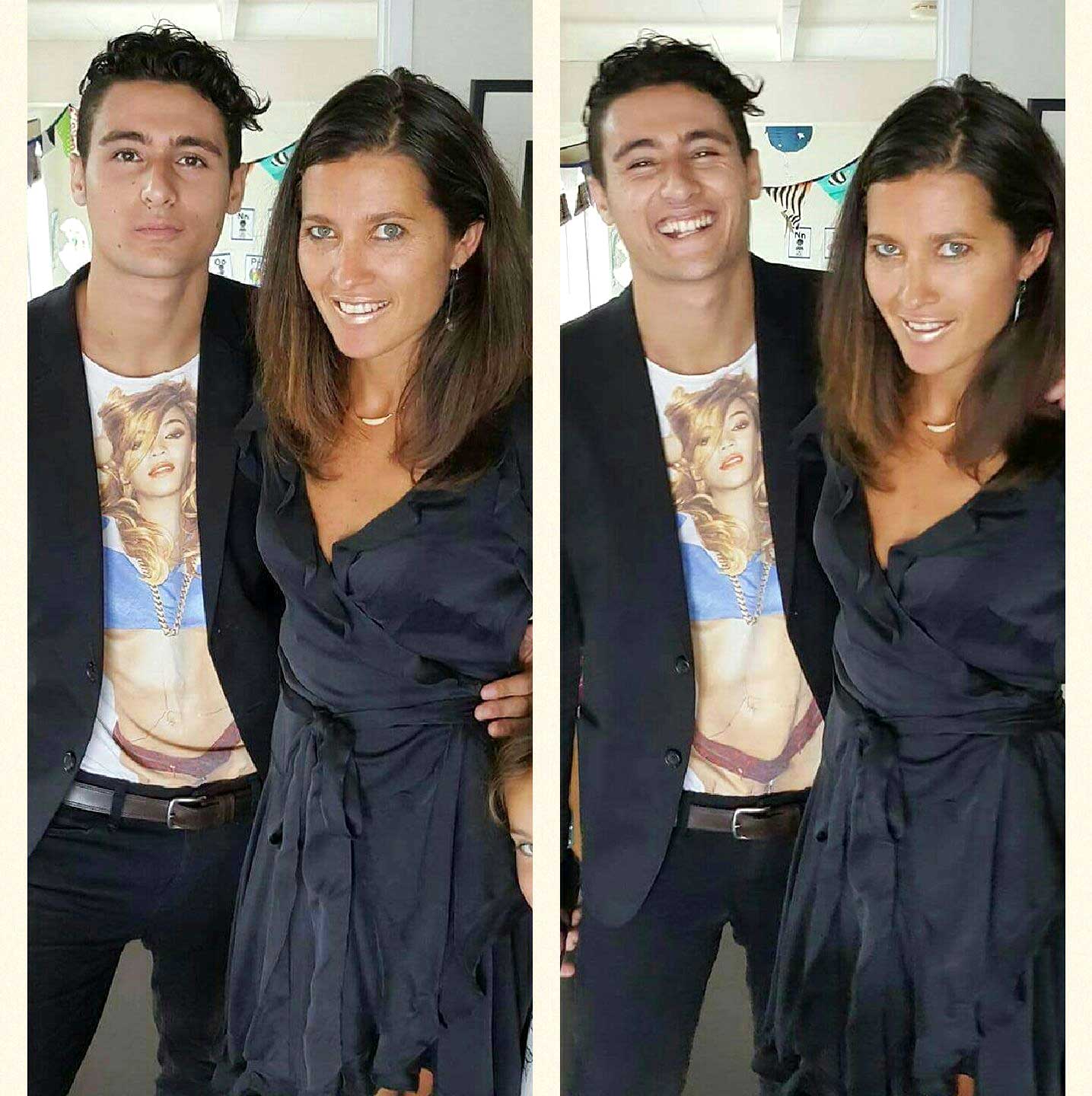
Chelsea’s son Maia is now 21 and pursuing showbiz in Hollywood.
Perhaps it’s only fitting that Chelsea has found her professional place amid the palm trees and sandy stretches of California, given that it was the beach town of Mount Maunganui where she first discovered a passion for storytelling, thanks to hours spent tapping away on her aunt’s typewriter.
After her parents divorced, when she was seven, and her two siblings left home, Chelsea remained with her dad John, who runs a home improvement business, until he remarried. She then joined her psychotherapist mother, Cherry, in Auckland, where she developed a love for art and photography and became enamoured of film-making after viewing legendary film-maker Merata Mita’s 1980 documentary Bastion Point: Day 507 at school. Chelsea was working as a picture framer when her life changed drastically.
“I got pregnant at about 19 and had an abortion because I thought, ‘I can’t have a baby.’ Then, lo and behold, it happened again and I was like, ‘Am I meant to have this kid?’ So, I had a baby 10 days shy of my 21st birthday and thought, ‘This is not going to change me.’ I had no idea what was coming my way.'”
Nor did she anticipate her partner would walk out three months after their son Maia’s birth, leaving Chelsea a young solo mum on the benefit. By Maia’s first birthday, she yearned to get her creative juices flowing, so when a friend with two young sons decided to head to Waikato University, Chelsea joined her. The two lived together with their kids while studying.
Eager to explore her maternal Maori heritage, Chelsea (who is of Ngati Ranginui and Ngai Te Rangi descent) would drive to her family’s marae for weekly te reo lessons, but one wintry night she hit loose gravel and smashed into trees.
“I was surprised I was alive when I saw the car. They cut me out, my face was smashed, I broke my leg in three places. My dad came racing into emergency and fell to his knees because I looked like I was dead.”

Chelsea and Taika have hired a Maori-speaking nanny to keep daughter Matewa connected to her culture.
Spending six months learning to walk again, she found herself back in Mount Maunganui and “feeling depressed”, until she stumbled upon an article about newsreader Susan Wood balancing work with parenthood.
Inspired, she penned a letter to Susan, who graciously invited Chelsea to meet her and tour TVNZ. Chelsea turned up on crutches, but the visit proved the final push to transfer her communications degree to Auckland University of Technology, which would enable her mum to help with Maia while she studied.
With many sleepless nights and hospital visits due to Maia’s eczema causing him to scratch himself “to smithereens”, trying to juggle university and motherhood remained a challenge, but she quickly found her calling majoring in television.
Hired at Kiwa Productions after graduating top of the class, Chelsea directed the Media Peace Award-winning documentary Tame Iti: The Man Behind the Moko, then fell into producing, which led to two significant encounters. One was meeting her film-making idol, Merata Mita, who strolled into the office one day. “I stood there freaking out!”
The other was Taika, who she interviewed for a TV documentary series profiling Maori artists.
“That was the first time I met him, but nothing happened. Then we met again on Boy, but nothing happened properly until after that,” recalls Chelsea, who had started a production company by then.
“It was like the typical, ‘Oh, you’re quite hot!’ But we were interested in each other’s work, especially because my background was documentaries, which is quite different from his – he’s got that oddball humour and comes from a comedy base, whereas I was more serious. We kind of hooked up after that.”
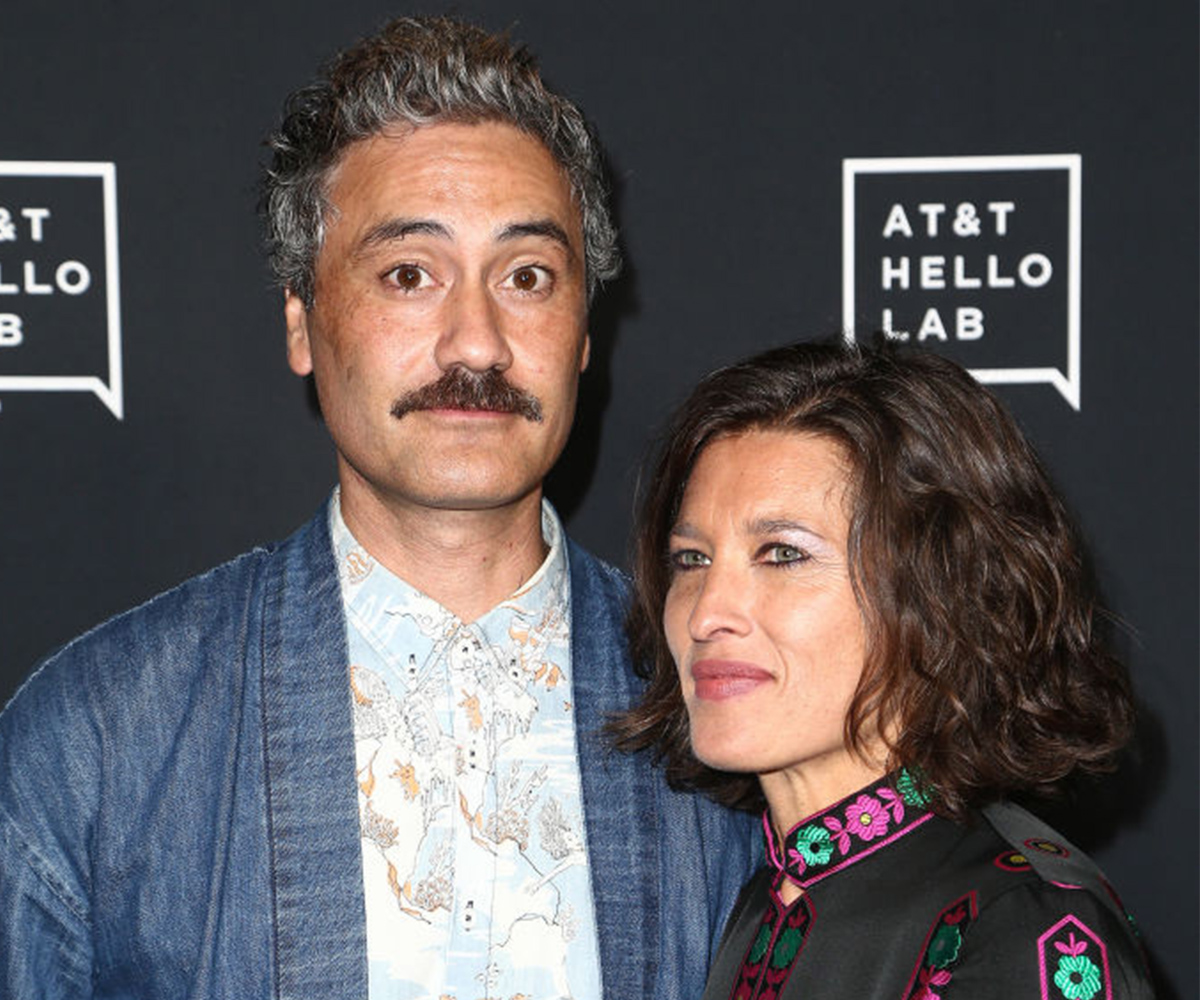
With Taika, Chelsea found she could open up in a way she never had before.
(Credit: Getty Images)It was during filming of 2010’s Boy that Chelsea got the call from Merata Mita, asking if she would produce Saving Grace: Te Whakarauora Tangata, a documentary about child abuse. Thrilled to work with her hero, Chelsea had no idea what would unfold.
“We took a rough cut to Maori Television and afterwards I asked if she wanted to go home or get some kai. She looked at me and said, ‘I want to go home,’ but the way she said it wasn’t normal… ‘going home’ meant something different.”
By the time Chelsea got her car, Merata had suffered a heart attack, collapsing on the pavement and passing away. Torn, Chelsea decided to complete Saving Grace.
“I wish I’d had the guts to say, ‘This isn’t for us to finish,’ but I was young and naive, so thought I was doing the right thing. I always regretted it, but made peace with it recently as I’ve helped her son, Heperi, make a film about her. I learned more about her than I ever knew and though she’s not physically in this world, I think about what she would say a lot – especially during Waru.”
Waru is the brainchild of former Shortland Street star Kiel McNaughton and his wife, Kerry Warkia, who sought eight female Maori directors to create 10-minute stories for a documentary highlighting child abuse.
The film, which made its TV debut on Maori Television on Mother’s Day, came at a time when Chelsea felt a pull to return to directing after producing others’ projects for so long, including Taika’s What We Do in the Shadows.
Having remained in New Zealand while Taika was helming Thor: Ragnarok in Australia, Chelsea decided it was time to return to the director’s chair herself, but admits she thought twice about directing such a deeply personal subject.
“I’m a sexual abuse survivor myself, so that both drew me to the project and repelled me. But the more we hide it, the more it happens.”

Chelse and daughters Matewa (pictured) and Te Hinekaahu were apart from Taika for an entire year while he filmed Thor.
Chelsea’s chapter in Waru, subtitled Kiritapu, “is about having a voice and the courage to speak up”. Named after her nan, Kiritapu Borell, and cousin/Labour MP Kiritapu Allan, Chelsea aimed to highlight how child abuse isn’t just a Maori issue and show a woman taking back power – a nod to her own experience.
“I want anyone who’s been abused to know they can take back control of their lives. You can get to a very dark place, but the strength is in getting through that. The beautiful thing about Waru is we all came with different perspectives and shed different light on the issue.
“The most incredible part was getting to screen it at marae. There’s nothing more satisfying than taking work home to your whanau because half the time they don’t know what you’re up to – or just talk about that husband of yours! To see people take ownership of the issues was incredible.
“One of my uncles said, ‘You all know me as the chauvinist fella, but this movie has changed me. I’m looking at my granddaughters and wife differently. We men need to step up and support our women.'”
To participate in something that has helped transform such attitudes has been somewhat healing for Chelsea, who wasn’t even “waru” (eight) when she was abused. Years of therapy have ensued, but to this day the experience has impacted her ability to trust, love and feel worthy.
“For most of my life, I’ve swept it under the carpet, but it always surfaces. It took away my innocence as a child, without my consent, and I harboured a lot of anger towards that. I’ve been an angry person for most of my life and that’s something I’m working on constantly.
“But the biggest thing has been not being able to trust, because when you’re a small child you trust everything and everyone, so when that trust is taken away, you’re constantly looking behind you, waiting for things to fall to pieces.

Chelsea and her daughter Te Hinekaahu, aged 5
“That’s the sad part – trying to get to a place where you don’t expect the worst and [know] you are worthy.
“When you’re abused as a young person, it’s so secretive and you’re put under this cloud of dirtiness. It’s like, ‘It’s your fault.’ You grow up [believing it] and thinking you’re not worthy of much because of it. To reconcile that as an adult means going back to that little person and going, ‘It’s okay! You didn’t know anything! You were made to do things you had no control over.'”
For a long time, Chelsea kept the pain to herself.
“Who are you going to tell when you’ve just been shown that older people can’t be trusted? And no one’s going to understand you at that age because you don’t even know how to articulate what’s just happened. So you keep it to yourself and that’s destructive inside and builds up. It’s definitely contributed to my failed relationships. That whole trust issue, always being wary and not wanting to send the wrong messages.”
But with Taika, Chelsea was able to open up in a way she never had before. The couple, who have two daughters (Te Hinekaahu, five, and Matewa), have been married for six years and his support has been a welcome light as she increasingly realises the positive effect of expressing her turmoil.
“The older I’ve gotten, the better I’ve been about being more honest. I’ve spoken to him about my abuse and he’s one of the first people I’ve done that with, so that’s a huge thing for me. I wouldn’t normally tell anybody this sh**! But the more I talk about it, the more I realise how much it helps you let go, so you don’t have to own it any more. He’s definitely the one I’ve shared the most pain with.
His first response was, ‘I wanna f***ing kill him!’ But it’s more just him being supportive and not shutting down, diminishing me or making me feel like past childhood stuff doesn’t matter. That’s been really nice – someone who wasn’t like, ‘Ugh, gross,’ but more like, ‘Wow. Let me understand this a bit more.’ Because you carry around all this shame and it’s so dumb because what have you got to be ashamed for? You didn’t do it to yourself, but that’s one of the myths and [victims] need to realise, it’s not your fault.
“I don’t even think I’ve fully reconciled it yet. I’ve just written a short film, which I’ve had in my mind for so long and it’s a love letter to myself, talking to that inner child and young girl. I want to deal with it and set it free… set her free.”
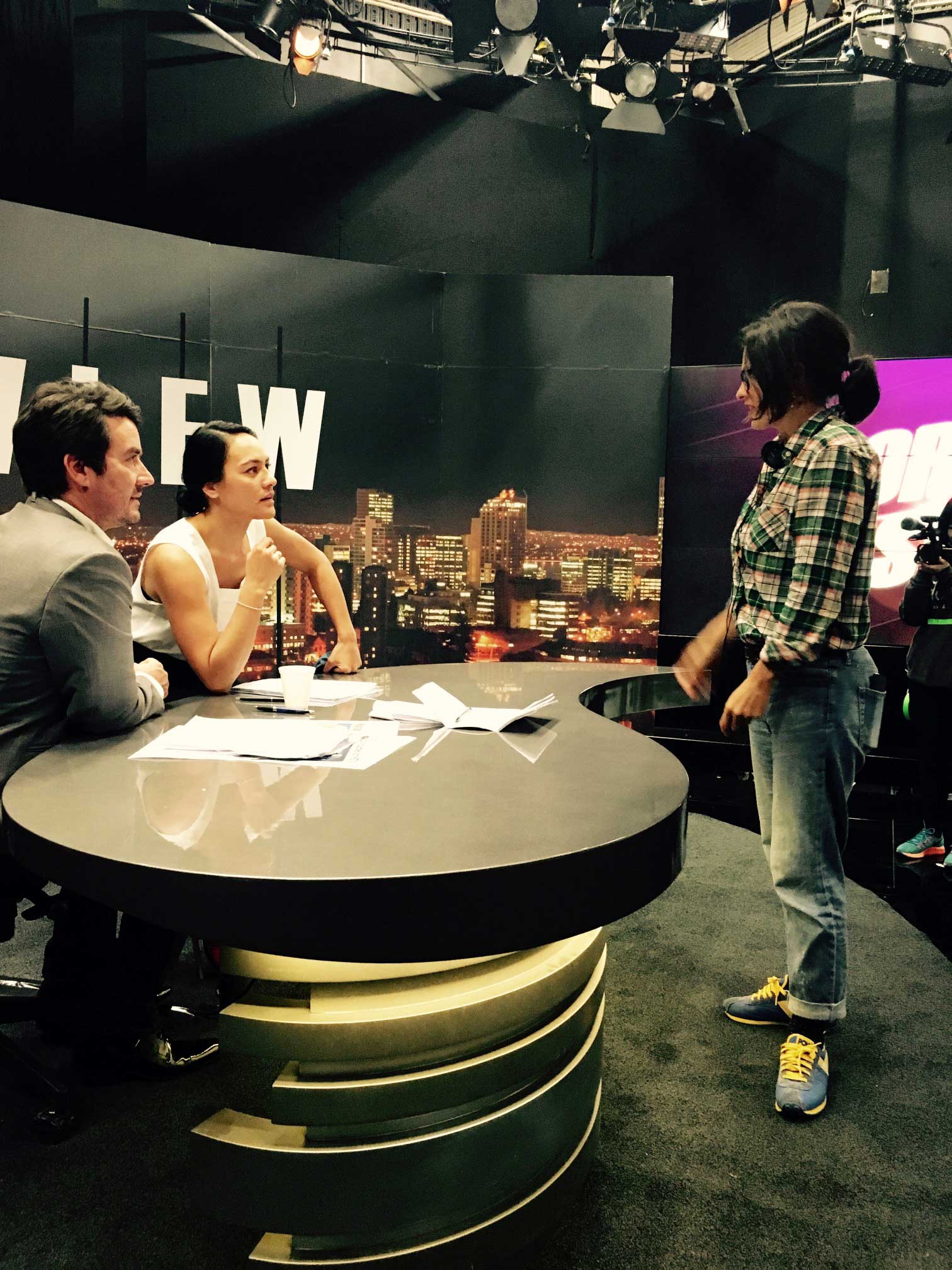
After focusing on producing other’s work for the past couple of years, Chelsea dedicated 2018 to directing.
It was Waru that helped spur Chelsea into starting the film then dedicate 2018 to directing. While she has continued to produce and was instrumental in securing rights to make a Maori language version of Disney’s Moana, her passion for directing has largely remained on the backburner until now.
Reigniting it is a move she’s well aware will bring new challenges to family life, given the high Taika is still riding following Thor: Ragnarok. While proud of his success, the mammoth gig came soon after Matewa’s birth and kept the family apart during filming.
“I didn’t go to Australia because I thought it’d be best to keep the girls in their culture, plus I was still doing the Mereta documentary and Waru was happening. It would’ve stopped me doing what I wanted to do, kept the girls out of school and we would’ve been sitting around waiting for him to finish work every day.
“In hindsight it was probably the worst thing we could have done because it kept our family apart for a year. The girls had no relationship with their dad. It’s hard to keep a family together when you’re literally apart and that’s why we moved to LA for the post-phase once I’d finished Waru – to get our family back together.
“That’s the hard thing about this industry, though. When you’re in a production, you have to be so focused, and finding space for family can be a challenge. In Taika’s role, you’re needed by so many departments you have to be an octopus with eight arms. And, he’s not someone who’s working on one thing – he’ll be pitching other projects or helping others.“

Undeniably, Taika’s success has come with sacrifices for Chelsea’s own career, but she’s quick to point out that motherhood has been equally impeding.
“You don’t just pop out a baby and return to work,” says the 2015 Women in Film & Television (WIFT) NZ Mana Wahine Award recipient.
“There’s a period where you’re taken out of your career trajectory. I can in no way compare myself to Taika and what he’s done, but if we didn’t have children I might’ve kept going along on my trajectory too. Now, I have to recognise I need to get back on that because it brings me joy, as well as having children. It’s difficult, but I’ve had to go, ‘I can’t just be a fulltime mum any more.’
“He’ll always be supportive of me doing my own work; it’s just about how we make that happen. I also need to make sure I have my own voice and direction away from him, otherwise I’ll always be ‘Taika’s wife’, or ‘I make films with Taika’. I didn’t make films with Taika before I met him, so I don’t need to after!”
Having found her film-making feet in Hollywood, Chelsea will remain there while Taika commences his next project, Jojo Rabbit, in Europe. The girls are gradually settling in, with Te Hinekaahu’s latest obsession ballet and gym – “I think she’s going to be the sporty one. Matewa will probably be the academic.”
Chelsea and Taika are mindful of implementing their culture in LA. They have employed a Maori-speaking nanny, they often speak Te Reo at home and the girls maintain rituals like karakia before dinner. Chelsea’s son Maia – now 21 and pursuing showbiz – has also recently joined the family in LA.
“He’s wanted to be an actor since school, so this is the perfect place. It’s ruthless and cut-throat, but you just have to keep believing there’s a place for you here.”
Naturally, LA life has come with star-studded moments, the highlight being when Chelsea accompanied Taika to a GQ party where she met rapper Snoop Dogg.
“And the whole red carpet thing with Thor was pretty spesh.
“Chris is really lovely,” she adds about the blockbuster’s hero. “And his wife’s gorgeous, inside and out. They come from such humble backgrounds, lovely surfer family with beautiful parents, so they’re really sweet.”
But while A-list pals and glamorous shindigs may have been common of late, Chelsea doesn’t take a single extravagance for granted. After all, it wasn’t so long ago her greatest joy came from an unrestrained supermarket run.
“I’ll never forget the day I got off the DPB and had my first pay cheque. I just wanted to go to the supermarket and buy anything I wanted. To buy the food you love – what a luxury! I took Maia and said, ‘You can have anything you want!’ To me, that was the ultimate.”
